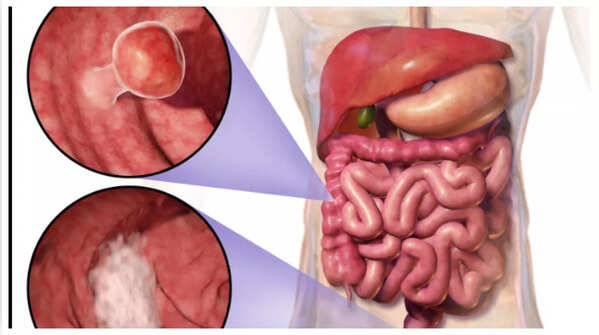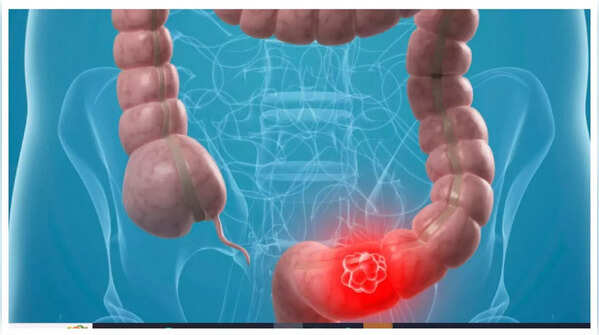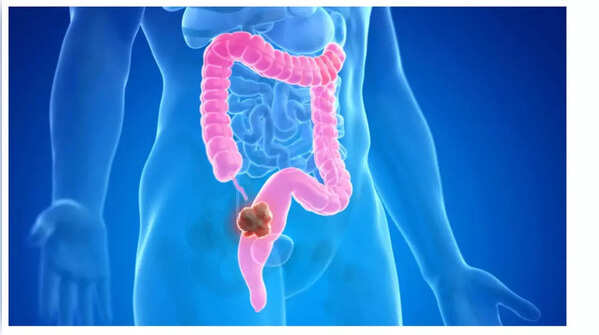Colon cancer, also known as colorectal cancer, originates in the colon or rectum, the final section of the large intestine. It frequently begins as benign cell clusters called polyps, which can become cancerous over time. While most cases arise spontaneously, factors like family history, obesity, and lifestyle can elevate the risk. As the majority of cases occur after the age of 50, early symptoms tend to be subtle, often mistaken for common digestive issues or stomach infections. However, certain warning signs should never be overlooked.

One of the earliest indicators of colon cancer is a noticeable shift in bowel habits. This may manifest as:
These changes may seem insignificant or temporary, and are often attributed to dietary adjustments, stress, or minor infections. However, if these alterations persist for more than a few days or recur frequently, they could signal the presence of colon cancer. Persistent changes suggest that a growing tumor might be affecting the colon, disrupting normal bowel movements.

The presence of blood in stool should never be ignored, regardless of whether colon cancer is suspected. This can appear as:
Sometimes, the bleeding is so minimal that it's undetectable to the naked eye, potentially leading to anemia over time. While blood in the stool can result from various conditions, such as hemorrhoids or infections, it's essential to rule out colon cancer, especially if it occurs repeatedly or is accompanied by other symptoms.

Persistent abdominal discomfort is another early symptom that is often dismissed. This can include:
Such discomfort can be mistaken for indigestion or other minor digestive issues like constipation. However, if the pain is continuous and unrelated to dietary or lifestyle changes, it could indicate a tumor causing irritation or blockage in the colon.

Unexplained and unusual tiredness or weakness can be a subtle sign of colon cancer, particularly when accompanied by other factors. This occurs because slow, unnoticed bleeding in the colon can lead to iron deficiency anemia. When the body lacks sufficient red blood cells, it cannot transport enough oxygen, resulting in fatigue, shortness of breath, and weakness. While these symptoms may be attributed to stress or lack of sleep, it's crucial to investigate them further.

Losing weight without any deliberate effort is a common symptom associated with many cancers, including colon cancer. When the body is battling cancer, the immune system remains in a state of heightened alert, and tumors can disrupt digestion and appetite. If you experience significant weight loss without any changes to your diet or exercise routine, it's crucial to consult a doctor. While this symptom often appears in later stages, it can sometimes serve as an early warning sign.

Disclaimer: This article serves informational purposes only and should not replace professional medical advice. Always seek guidance from a qualified healthcare provider if you experience any of the aforementioned issues.
Sources:









Newer articles
Older articles
 Gujarat Cricket Association Gears Up to Launch T20 League in 2025-26 Season
Gujarat Cricket Association Gears Up to Launch T20 League in 2025-26 Season
 Black Caps Set for Blockbuster Home Summer Against Cricket Giants
Black Caps Set for Blockbuster Home Summer Against Cricket Giants
 Daren Sammy Fined, Receives Demerit Point for Umpire Criticism After Test Match Controversy
Daren Sammy Fined, Receives Demerit Point for Umpire Criticism After Test Match Controversy
 Elon Musk Calls for ISS Retirement, Citing Mars Focus After $1.25B Allocation
Elon Musk Calls for ISS Retirement, Citing Mars Focus After $1.25B Allocation
 Smith Aims for Second Test Return After Unique Baseball Cage Recovery
Smith Aims for Second Test Return After Unique Baseball Cage Recovery
 Najmul Hossain Shanto Resigns as Bangladesh Test Captain After Sri Lanka Defeat
Najmul Hossain Shanto Resigns as Bangladesh Test Captain After Sri Lanka Defeat
 Sharma Reveals Heart-Stopping Moment of Yadav's Game-Changing Catch in T20 World Cup
Sharma Reveals Heart-Stopping Moment of Yadav's Game-Changing Catch in T20 World Cup
 Ex-India Star Engineer Slams ECB's Pataudi Trophy Renaming, Questions Anderson-Tendulkar Choice
Ex-India Star Engineer Slams ECB's Pataudi Trophy Renaming, Questions Anderson-Tendulkar Choice
 Man City Title Stripping: Unprecedented Chaos Looms for Premier League Amid Financial Allegations
Man City Title Stripping: Unprecedented Chaos Looms for Premier League Amid Financial Allegations
 Jin's Solo Concert in Korea: A Reunion with ARMY, Surprise Guests, and Electrifying Performances
Jin's Solo Concert in Korea: A Reunion with ARMY, Surprise Guests, and Electrifying Performances